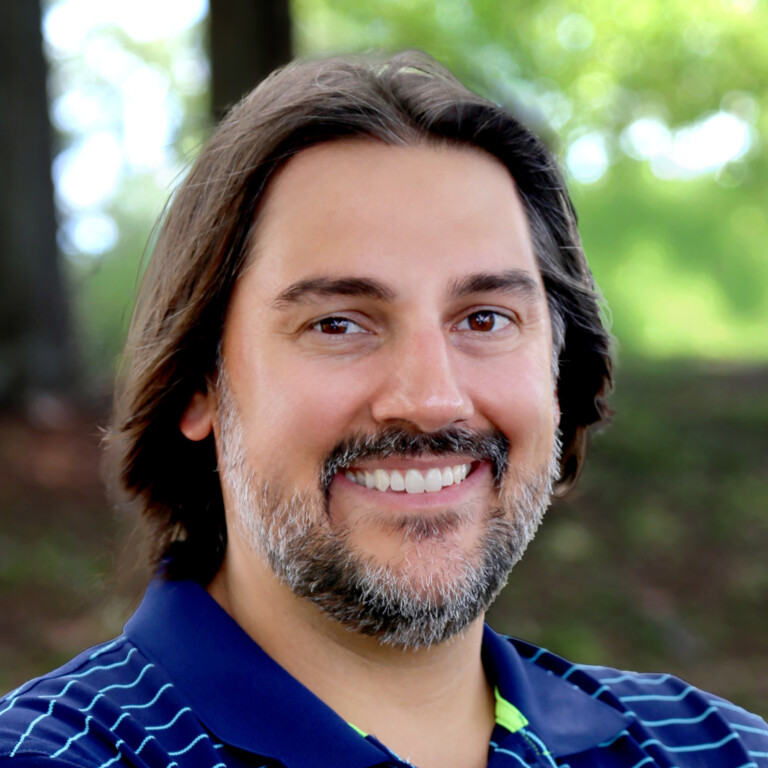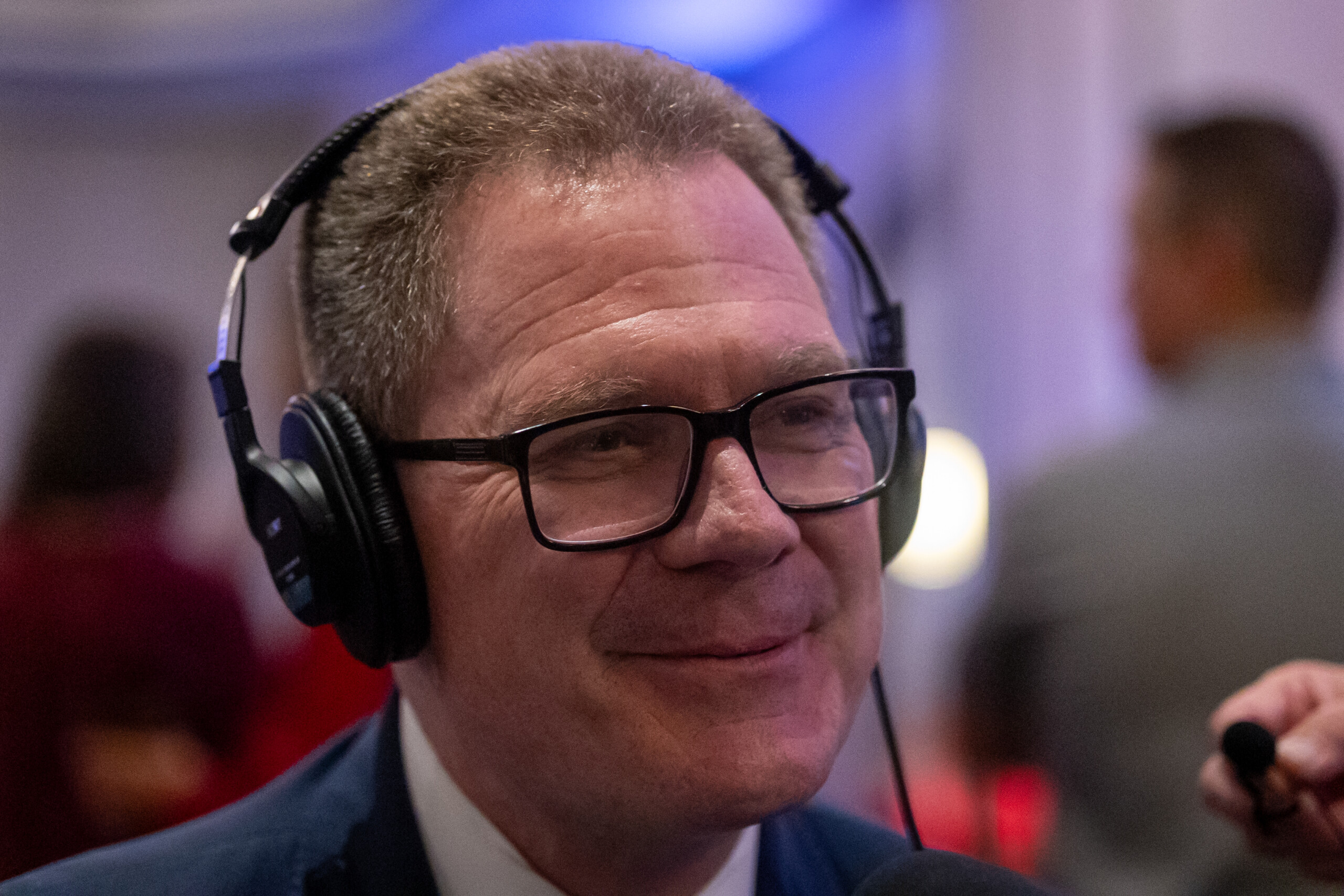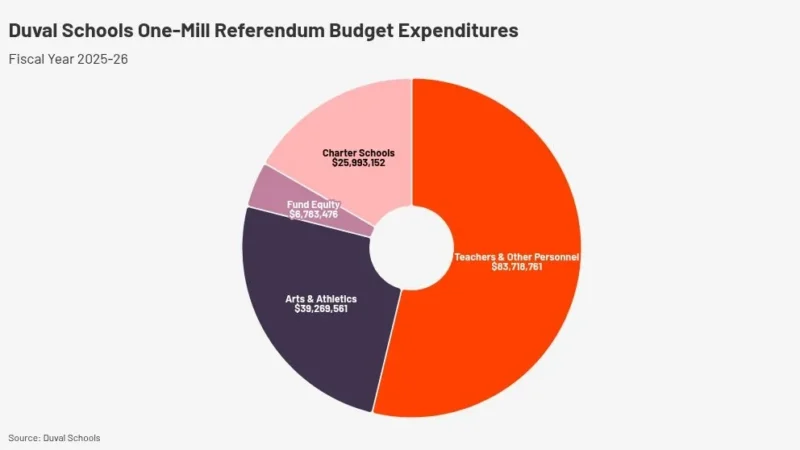The announcement Friday by Florida House and Senate leaders that they have a deal on a budget framework that includes $2.8 billion in tax cuts will still send the Legislature into overtime next week to complete negotiations.
Jacksonville Today spoke Monday with state Rep. Dean Back, R-Jacksonville, about the fiscal implications of the proposed tax cuts and where the budget talks stand headed into the extended session on Monday.
Black, a member of a select House Committee on property taxes, says it will take “a considerable period of time” to finalize plans to reduce or eliminate some of the state’s residential property taxes.
The former Duval County Republican Party chair also discussed the at-times contentious relationship this session between House leadership and Gov. Ron DeSantis, and a legislative push this session to further strengthen charter schools in Florida.
Q: How do you bridge the budget gulf before the June 30 deadline?
A: Well, the first order of business is that you do have to come up with a basic framework, because if you can’t agree on approximately how much revenue you’re going to have, it’s hard to figure out the budget that all necessarily flows from that. I’m happy to report, though, that as of Friday night, we did announce that there was a framework in place. We’ll be back in Tallahassee the week of May 12, and we will go to conference, and we’re looking forward to getting an accurate and fiscally responsible budget together.
Q: In that framework, is there a final agreement on what those tax cut numbers will be?
A: Well, there will be substantial tax cuts for Floridians. And as far as the exact details of that, I think that’s all still being worked out. But the good news is, that as we look ahead, we know that there are times when our revenues could shrink in Florida, and we’re looking ahead to make sure that we’re running a fiscally responsible state. We’re not going to take Floridians into debt. And frankly, Floridians could use tax relief. And at the end of the day, what we’re really arguing about is a good thing to be arguing about, and that is not whether, but simply how, to give Floridians relief by reducing their taxes. That’s a really good argument to be having.
READ MORE: See Jacksonville Today’s Q&A with state Sen. Tracie Davis
Q: What’s your preference on where those tax cuts should come from?
A: I think there are things that we can do immediately, and then I think there are things that we should look ahead to that may take a little bit longer to implement. I love the idea of reducing the sales tax because we can do that instantaneously, and there are discussions going on between the Senate and the House, and I’m sure the governor’s office as well, as to exactly the best way to effect that. But then looking ahead more intermediate or long term, a lot of discussion has been held about reducing property taxes. It’s a shame that you buy a home in Florida, you make all your payments for 30 years or whatever, but your home can still be taken away from you because you never truly own it, because you always, every year, owe property taxes. And we’d like to investigate ways to reduce or eliminate that, and we’re going to be working on that for a considerable period of time.
Q: With those tax reductions there will likely be spending cuts. Do you have an idea of where that money will come from?
A: Well, I think we’ll know more about that once we come back into session on (May) 12th and then we’ll be in conference, and that’s where those numbers will get a little more clarity to them.
Q: Gov. Ron DeSantis has pushed for the elimination of property taxes in the lead up to his State of the State address in March. As a member of the committee, what are the lead ideas right now and where do those talks stand?
A: Whatever we do with property taxes is going to take a while, because you have to modify the Constitution itself, so that isn’t going to happen overnight. So we’re trying to do things immediately, and then things with property taxes over a period of time. And some of the things that we’re looking at, perhaps requiring referenda on eliminating property taxes on homestead properties. We’re looking at greatly increasing the homestead exemption to half a million dollars, and then as well, a million-dollar homestead exemption for properties that are owned by Floridians, age 65 and older, and who’ve had a homestead for at least 30 years. We could authorize the Legislature to increase the homestead exemption to any value by general law. Also modifying the assessment increased limitations on property values. There’s also been floated the idea of protecting home ownership by eliminating the ability to foreclose on a homestead property due to a property tax lien.
Those are some of the things that are being discussed. We’ll need to look at what the revenue consequences of any or some combination of these things would be, and then we need to consider what we would do for our counties and cities to enable them to have the flexibility to replace revenue. Because we want to protect Floridians’ homeownership, but we also want to make sure that we can still fund police, fire, our schools and so forth. So there’s a lot of work ahead, but there’s a real vision, and I look forward to hearing from the public as to their opinions on the matter.
Q: Some states have provided backfill to cities and counties after a substantial property tax reduction. Is that on the table or are you talking about allowing local governments to have additional taxing authority?
A: I think at this point, the discussions are so early that literally everything is on the table. Nothing has been rejected yet.
Q: Are there talks about cuts to commercial property taxes, and is that something that you would support?
A: I don’t think that was really the topic of discussion, and that’s not where we’re steering. I think everything is on the table. But I think the great mission here is again, to make sure that Floridians, once they have paid for their home, aren’t taxed out of it.
Q: This session we saw a lot of legislation proposed that would expand charter schools. This could result in redirection of pure per-pupil funding that would have gone to those traditional public schools. How do traditional public schools continue to get resources they need to operate and to improve? Can the public charter school and the traditional public school models coexist?
A: Well, from the Legislature’s point of view, there is just public education, and within that, there are a variety of methods that parents can choose from to see to it that their children are educated properly, and the parents get to decide. And we have a number of charter schools. There are scholarships available to go to private schools and then traditional public schools, the truth is, we have a lot of really good traditional public schools. Schools that are having no problem attracting students because parents want kids to go there, because they’re running really good schools. Overall, what we’re achieving is real competition, and that’s making for better choices for parents, better choices for their kids, and a better trained workforce for our state and our country.
Q: But how do you make sure that those traditional public schools continue to get the resources they need to make sure they can improve and stay competitive with charter schools?
A: Well, again, I think it’s parents who are choosing. The parents decide where their kids want to go, and it’s for whatever school, whether it be a traditional public school or a charter school or a private school. If you’re not able to attract enough students, you need to look in the mirror and ask yourself what you need to change. What is it you’re doing or what is it that you need to be doing in order to get parents to bring students to your school? It’s simply competition. And I think we have a lot of great traditional public schools, and it’s augmented by a lot of great charter schools, a lot of great private schools. We have lots and lots of options in Florida.
Q: House leadership’s interactions with Gov. DeSantis this session have appeared to be a little more strained than in the past sessions. Can you talk about that relationship and what those strains mean for politics and policy over the next year and a half of the governor’s term. How do you see it affecting work on the budget coming up, and then 2026 priorities?
A: There’s been a lot of what we’ll say, what we’ll call noise between the House and the Senate and the governor, and what you’re hearing is proof that the balance of powers is working. It’s just the noise of healthy politics. Now, sometimes the noise gets louder and sometimes it calms to a murmur, but it is, to some extent, fairly normal. It is for the House to advocate for its prerogatives, and for the Senate to do likewise, and for the executive branch to do the same, and for the judiciary to do the same. And that’s normal, and a sign that you have a healthy government, all the branches performing the way they’re supposed to, and it’s just the pure noise of representative democracy.
Q: Does it make it more difficult or maybe even surprisingly more difficult when you have a party that has control of both chambers and the governor’s office to have these policy divisions?
A: One of the main bones of contention that we’ve had is about the nature of tax policy and as a Republican, I really like the way this debate is shaping up, because at the end of the day, we want lower taxes, we want a smaller, leaner, more efficient government. That is fundamental to Republican Party beliefs. And the debate that we’re having is not over whether we’re going to make government smaller or not. It’s not over whether we’re going to shrink it or make it leaner or more efficient or not. It isn’t over whether we’re going to cut taxes or not. It’s simply, how much are we going to shrink government? How much are we going to shrink taxes? How lean can we make it and still deliver the level of services that the public expects. That is a very healthy conversation to be having from a Republican point of view. … What I would encourage the public to do is that if they have a good idea, or even if they’re not sure, but they think it might be a good idea, I would encourage them to reach out to their state legislator. Some of the very best ideas we get are from average citizens who have had an experience, and they bring it to our attention.
Editor’s note: This Q&A have been edited and condensed for clarity.







